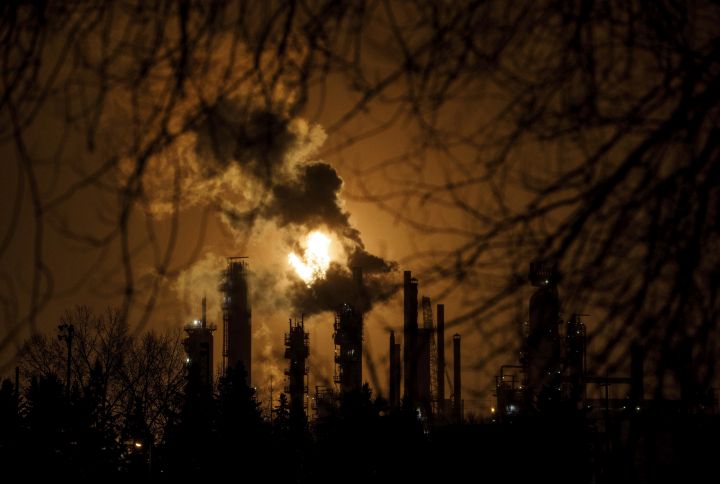Direct employment in Canada’s oil and gas sector is expected to fall by more than 12,000 jobs this year, according to a new report from PetroLMI.

The number of workers is forecast to drop to about 173,300 in 2019, a decline of 23 per cent from 226,500 in 2014, according to the 2019 labour market update published Monday.
PetroLMI, the labour statistics information division of Energy Safety Canada, says about 12,500 jobs are at risk this year due to factors including low commodity prices, a decline in investment spending and uncertainty about getting oil and gas to market due to full export pipelines.
“Until such time as additional export capacity becomes available, the employment outlook for Canada’s oil and gas sector will continue to be impacted,” said PetroLMI vice-president Carol Howes.
The report comes as Alberta enters its fourth month of government-ordered oil production curtailment designed to free up pipeline space and reduce stored barrels blamed for steep price discounts last fall.
READ MORE: Parkland Fuel CEO links Alberta oil curtailments to lower refinery margins
Watch below: (from Jan 30, 2019) Speaking in Calgary, Rachel Notley discusses the future of her province’s curtailment on oil production.
_848x480_1434776643759.jpg?w=1040&quality=70&strip=all)
The report estimates that about 7,600 oil and gas field services positions will disappear this year (nine per cent of the workforce), along with about six per cent or 3,700 jobs in exploration and production and five per cent or 1,400 oilsands positions.
The pipeline workforce is forecast to grow by about two per cent or 200 jobs.
READ MORE: Alberta unemployment rate hits 7.3%
Watch below: (From March 8, 2019) Calgary now has the highest unemployment rate in the country, and with an election looming. Adam MacVicar reports.

“As we’ve been saying for several years, the oilfield services sector has been severely damaged, and 2019 will be the same if nothing changes,” said CEO Mark Scholz of the Canadian Association of Oilwell Drilling Contractors.
“Market access continues to be the number one issue, as lack of infrastructure has cost Canada billions in investment dollars.”
The CAODC reports that only 36 per cent of its members’ drilling rigs were employed in the first quarter, which is traditionally the busiest time of year in Canada as frozen ground allows access to remote backcountry drilling sites.
The industry relocated 16 Canadian rigs to the U.S. in 2018, up from six in 2017, and is continuing to send rigs south of the border this year.
Calgary-based Trican Well Service Ltd. reported recently it cut 160 jobs due to a 40 per cent decline in revenue in the fourth quarter of 2018 as drilling activity slowed in Western Canada.
The Petroleum Services Association of Canada said in January it expects 5,600 wells to be drilled this year, down from 6,948 in 2018, due to what it called deteriorating investor confidence in Canada.
The oil and gas labour market shrank quickly in 2015 and 2016 following a commodity price collapse and remained relatively flat through 2017 and 2018, PetroLMI said in its report.
READ MORE: Federal finance minister visits Calgary as protesters rally for pipelines
Employment is expected to decline in most producing provinces except British Columbia, which will benefit from pipeline and new natural gas processing activity with an increase of about two per cent or 200 positions, it said.
Alberta, as the largest energy-producing province, is expected to have the most jobs at risk at 9,600, or about six per cent of its total oil and gas workforce.
READ MORE: Alberta Election Fact Check: UCP claims NDP’s plan killed 48,000 jobs in 4 months
Watch below: (From March 21, 2019) United Conservatives say nearly 50,000 full-time jobs have been lost in Alberta over the last four months. Is this true? And are NDP policies at fault?

Saskatchewan, meanwhile, is expected to have about 600 positions, also about six per cent, at risk.



Comments